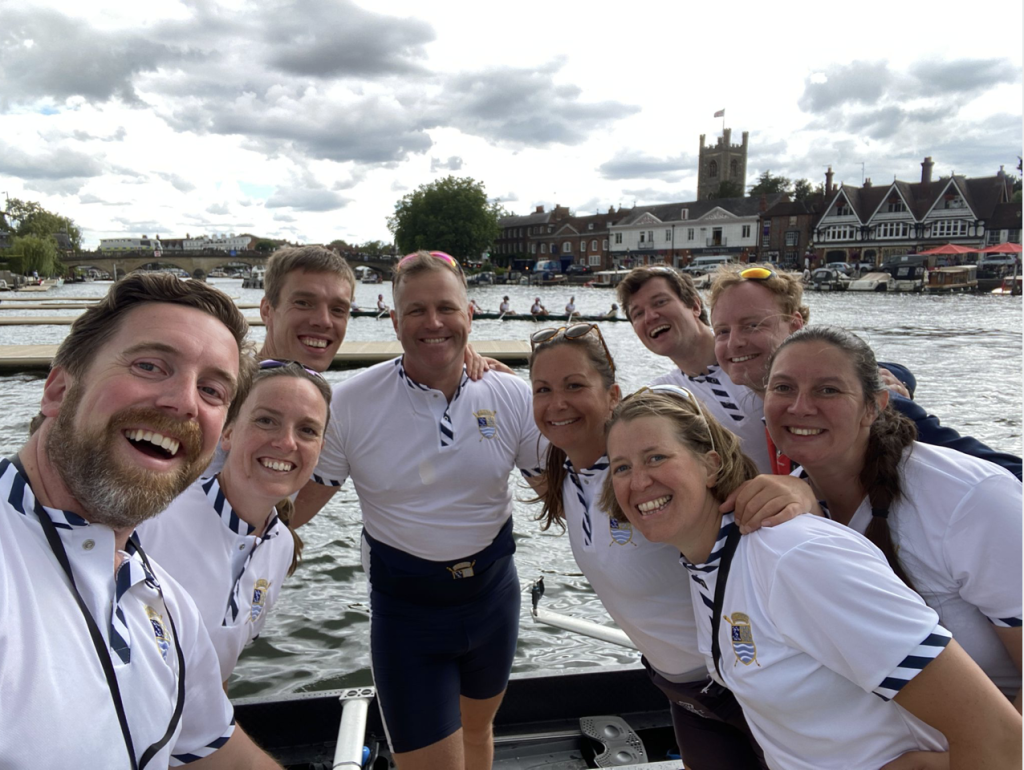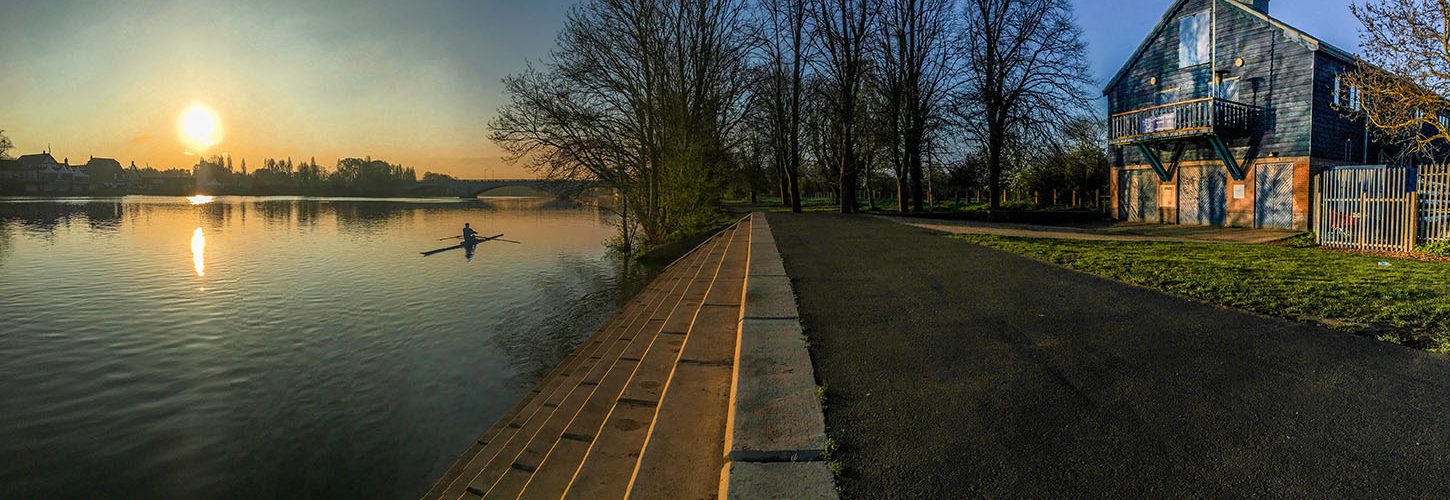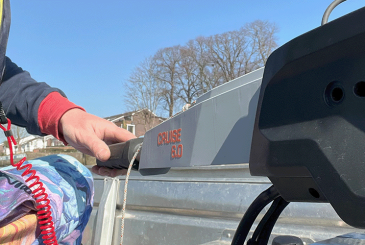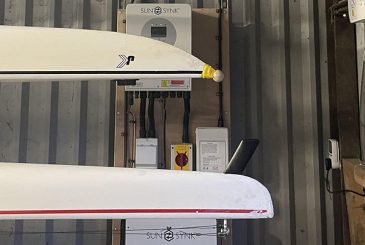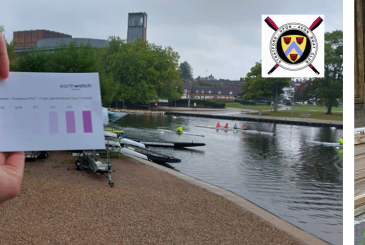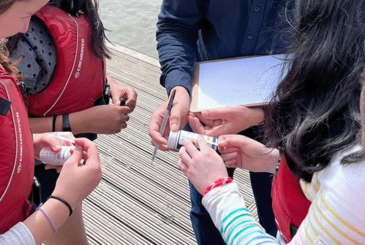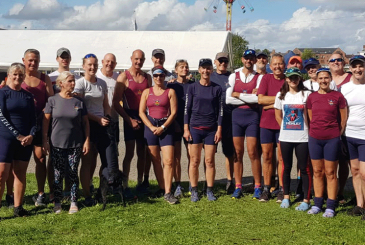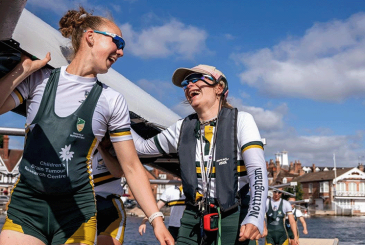From being the first ‘tradesmen’s’ club to reach a final at Henley Royal Regatta, providing a home for an innovative scheme to boost women’s rowing and relocating away from Putney, to building a fantastic new boathouse after a devastating fire, quite a lot has happened at Putney Town RC since it was founded in 1922. Geoff Adams (President) and Pete Jones (past Club Secretary) run through the club’s history.
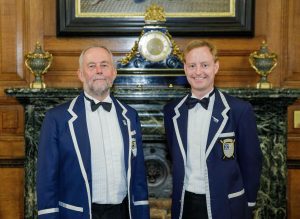
A hundred years ago, a group of oarsmen gathered at the Half Moon Hotel, Putney, to discuss their situation. The rowers, all from the local waterside families, had been left without a club following the relocation of Sons of the Thames RC to Hammersmith and the demise of Farnborough RC. While they had briefly formed a rowing section within St Mary’s Recreation Club, it was time to begin a new chapter and create a future for themselves. Thus, on 29 January 1922, Putney Town RC was founded.
Early years
The newly formed club established themselves at the Duke’s Head, a familiar landmark on the Putney embankment. They competed, with success, under the tradesmen’s rules; at that time the Amateur Rowing Association (ARA)not only excluded ‘professional’ oarsmen (who had competed for prize money) from its races but also boatbuilders, tradesmen and all other manual workers.
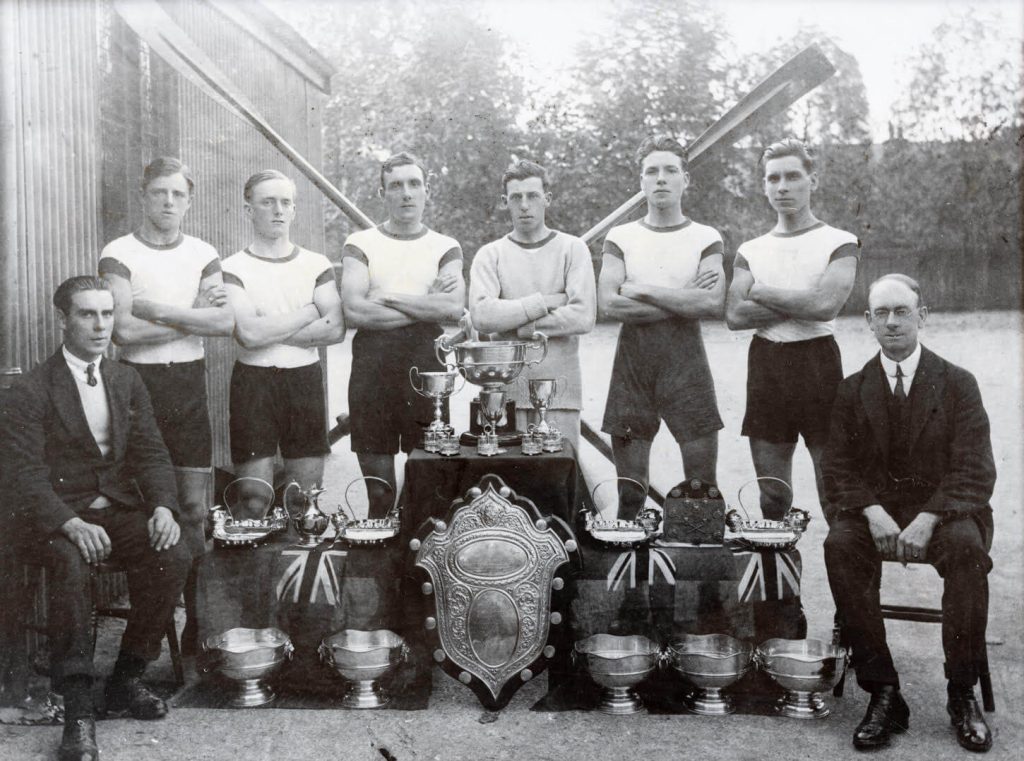
This success continued beyond the end of the manual labour restrictions in 1956 when Putney Town became the first tradesmen’s club to reach a final of Henley Royal Regatta, losing narrowly to the National Provincial Bank RC in the Wyfold Challenge Cup.
The decision was taken to actively seek a new home to avoid a decline
However, as technological advances changed rowing in the coming decades, as a club with a small home in the basement of a pub, Putney Town found it increasingly difficult to keep up with its rivals. Its small space limited its income, which in turn constrained boat investment and that deterred potential members. A fundraising campaign in the 1960s enabled some upgrade of the fleet. While this bought some time, relying on external funding was not a sustainable solution.
Something needed to change and the decision was taken to actively seek a new home to avoid a decline. Fundraising began in earnest and sites were investigated in both Putney and Fulham. A solution presented itself in 1986 when, suddenly, the landlord at the Duke’s Head gave the club notice to vacate. Serendipitously, Thames Tradesmen’s RC elected to leave their site in Mortlake at the same time. A members’ meeting ratified the decision to take this over and a great ‘row up’ was planned to take the Putney Town fleet to its new home.
Putney Town builds a home for female rowers
While it was a luxury to have a boathouse big enough for the fleet, with room to spare, and a bar for the first time, the old building was in need of investment. The task fell to members themselves to update the tired premises. A funding agreement with the ARA contributed to the establishment of a Women’s Rowing Centre at the club. The intention was to attract women who were already at a high level of performance in another sport and so theoretically held the physical and mental requirements to succeed at rowing. This new group was coached by Doug Parnham, himself a former Olympian (in the sport of canoeing).
Over the next few years, the partnership thrived. The number of women entering the sport began to grow in earnest, and delivered excellent results for the club, culminating in two members winning the Pairs Head in 1991 and subsequently being invited to join the national squad. It was from this initiative and that Pairs Head win that Putney Town’s first Olympian emerged. Joanna Turvey was selected and raced for Great Britain at Banyoles in 1992.
Disaster
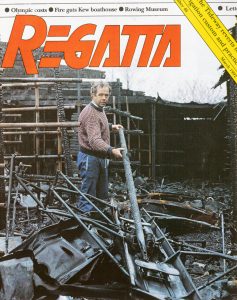
Disaster struck in February 1992 when an arson attack destroyed the entire fleet and damaged the remaining boathouse beyond repair. The only option was total demolition. In the following turbulent months, many talented oarsmen and women moved to other clubs to continue their training: a club with no fleet and no boathouse could not continue to support serious athletes.
This left the committee with a difficult decision in the face of few members, no boats and no home: to rebuild or close? To those left, the only option was to rebuild: the alternative, too painful to consider.
Steely resolve
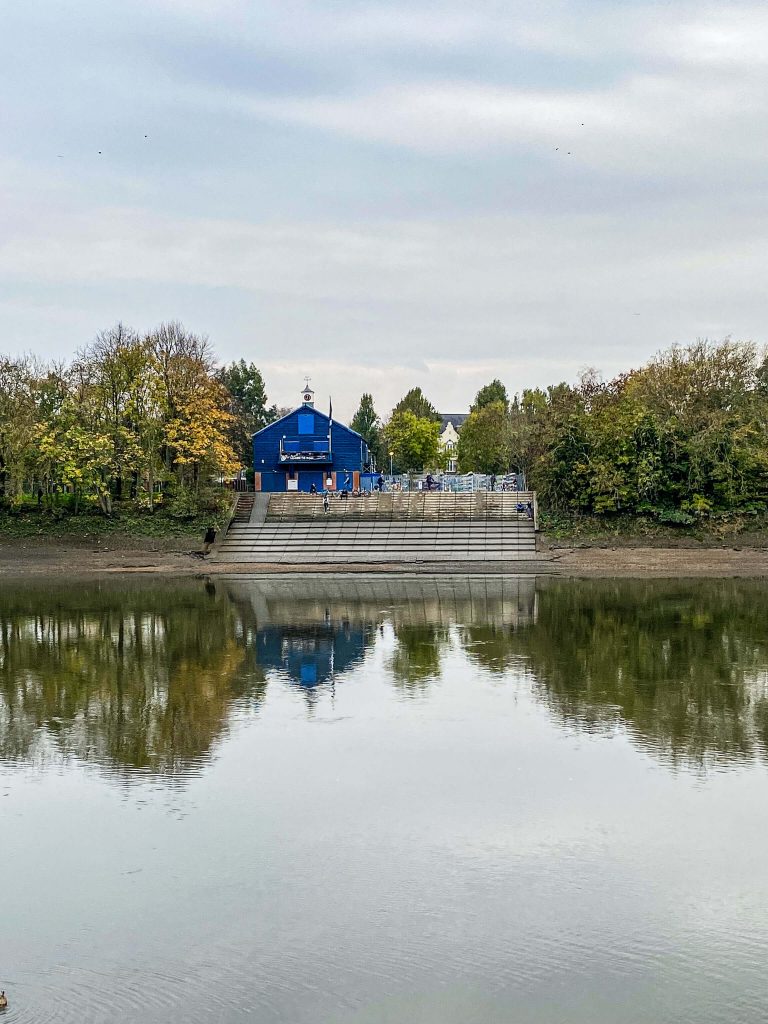
Thanks to an injection of money from the newly formed National Lottery and the Foundation for Sport and the Arts, construction began in 1993 and was completed in 1994. Members then fitted out the new building, ready for Putney Town RC to reopen its doors in 1995. And what doors they were! The splendid new boathouse was a vast improvement on the one it replaced and was truly fit for the future thanks to the quiet ambition of those few remaining members.
With the club back on its feet, some former rowers returned and through a major recruitment drive, member numbers grew steadily, squads reformed and the Putney Town began to compete again.
A naked rowing calendar was commissioned to bring in an injection of cash
Finances still tight following the rebuild, though, so with the stirring final notes from the newly released hit movie The Full Monty ringing in the ears of the committee, a naked rowing calendar was commissioned to bring in an injection of cash and an urgency to training aspirations. Beautifully photographed and produced by Club Captain Anthony Cake, legend has it that a copy still hangs in current President Geoff Adams’ downstairs loo.
The turn of the millennium
Into the 2000s, the club continued to thrive in its new home as membership exceeded 200 for the first time. The move across the river of Mortlake Anglian and Alpha RC from adjacent premises provided an opportunity to expand again, creating room for an ever-growing fleet to meet the demands of the increasing membership.
Learn to Row courses were introduced, offering complete beginners the chance to enter the sport, adding up to 48 potential athletes to the club’s ranks each year. These new members have increasingly formed the driving force of the club on the water, in competition, on the committee and in the social life of the club. This welcoming approach to new rowers helped to produce our second and third Olympians: both Charlotte Taylor and John Collins learned their trade at Putney Town and later represented Great Britain at Rio in 2016.
Both Charlotte and John recall their introduction to rowing at the club:
“Without Putney Town I would never have had an international rowing career, I literally have everything to thank them for. I joined as a novice just looking to make new friends in a city I had just moved to. That sounded just the ticket and I joined in a very social capacity to start with. I immediately met an amazing group of people and the club quickly started to change my life. I was quickly addicted to it. The dedication of my coaches Tom and Martin and the support of the whole club propelled me with confidence into trialling for the national team and that support saw me achieve my greatest ambition of earning a GB vest. All this I owe to the friendliest club on the Tideway!” – Charlotte
“When we got off the water I was ready to burst into tears and tell my dad there wasn’t a hope in hell I was going to do this rubbish sport. My dad turned to Geoff [the President] and said, ‘How’d he do?’ Geoff replied with a smile, ‘He’s a strong lad, I couldn’t keep up!’ I don’t know whether that was all a set up between Geoff and my dad but it really didn’t matter. Those words made me feel like a champion and I was sold. For the first time in my life I felt like I belonged to something.” – John
Squad success returned, too. The 2007 men’s squad became the first crew from the club to qualify for Henley Royal Regatta in nearly 40 years, an achievement that was repeated several times over the following years. Meanwhile, the women’s squad finished in the top 30 at the Women’s Eights Head of the River Race at a similar time and won medals at the National Championships.
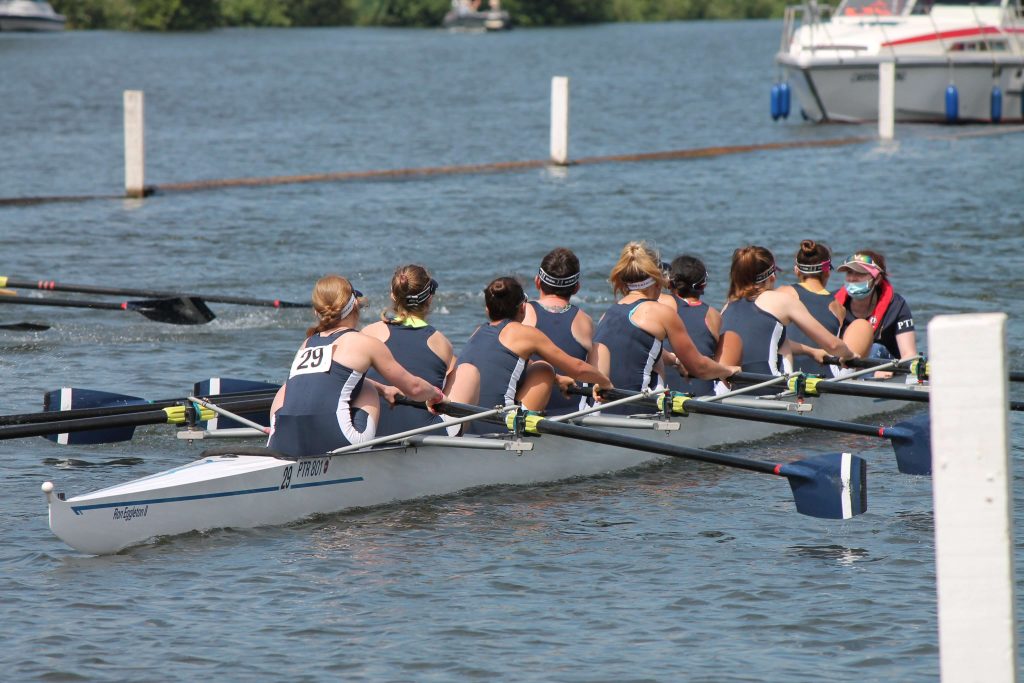
The new ramp
An oddity of the location in Mortlake was that access to the river was some 100m downstream in front of the long-since-deserted site of a previous boathouse. Access was difficult and left the club somewhat hidden and detached from its river.
In 2011, the membership committed to a major engineering project to build a new ramp directly outside the club at a cost of £330,000, funded again by members and grants. The project completed in 2012 and the ramp was officially opened at the club’s 90th birthday celebration that year. Since then, Putney Town has become a visible feature on the television behind winning Boat Race crews!
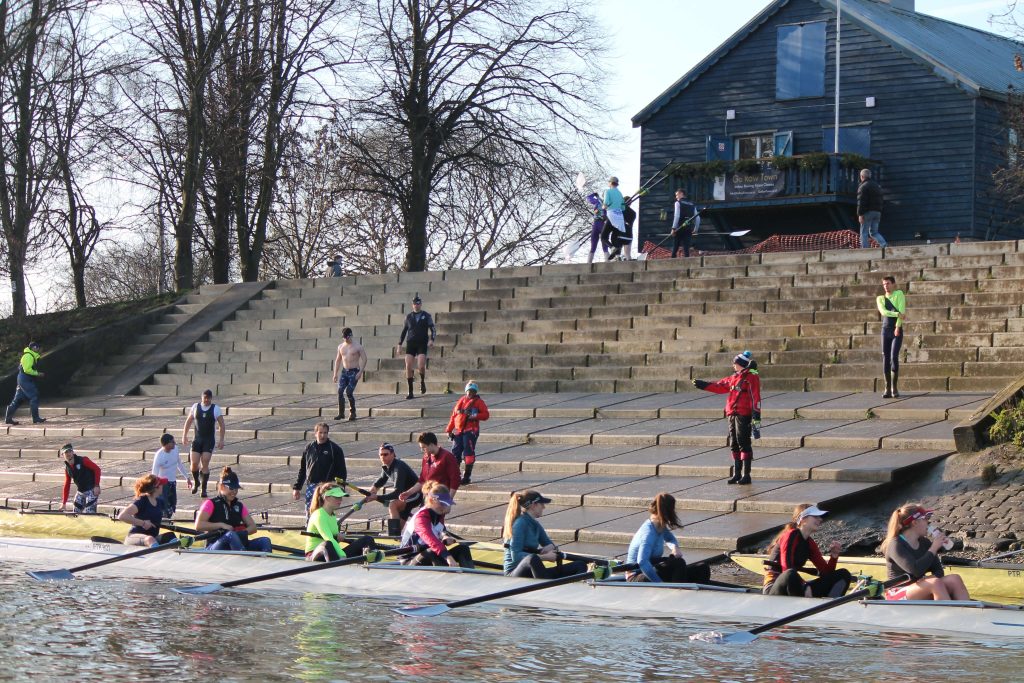
Bigger than ever
Ten years later and out the other side of Covid, the club now has a still-growing membership over 300. This includes thriving senior, masters and development squads for men and women of broadly equal size, as well as recreational social sculling groups and plenty of members who fall outside the organised structure but are equally important!
Despite the continuing growth, the club continues its ambition to improve. In January 2022 the membership voted for another major project: to build a much bigger balcony for outside training and socialising, and to install a lift and accessible toilets to further increase our ability to embrace the whole community. Fundraising is progressing well, and construction is expected to start later this year.
Milestone decisions
1922 – Putney Town RC formed
1986 – Relocation to Mortlake
1992 – Commitment to rebuild
2011 – Investment in the new ramp
2022 – Further investment in accessible facilities
With thanks
With the benefit of hindsight, we now know that thanks to the ambition, foresight and determined efforts of a few key, ‘bleed blue’ Putney Town members at pivotal moments throughout the club’s history, a community of 300 rowers has a family and a home in 2022 that is the envy of many. Supported by numerous volunteers, and in more recent years professional coaches, the club has successfully grown to a size that would never have been possible if we had remained in Putney as poor neighbours to the longer-established clubs.
Putney Town members toasted that dedication with a row-past at Henley Royal Regatta and a recent gala dinner at Drapers’ Hall in the City of London as they celebrated the past 100 years, and look forward to the next!
